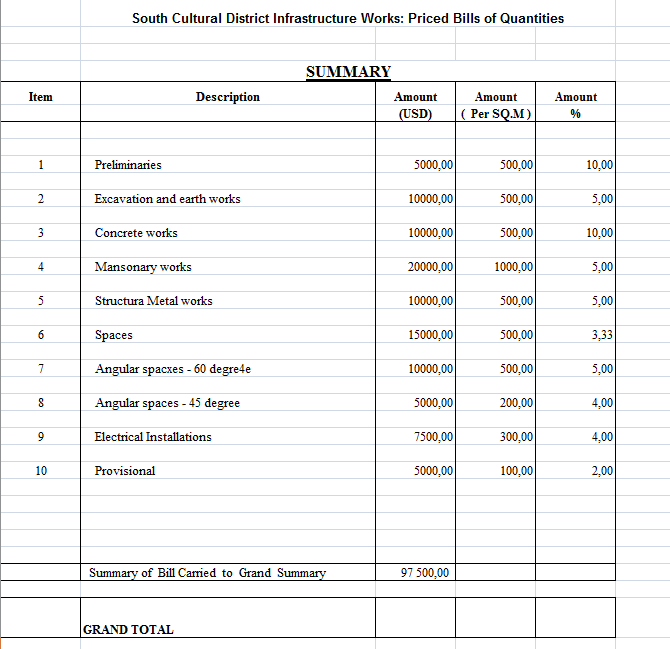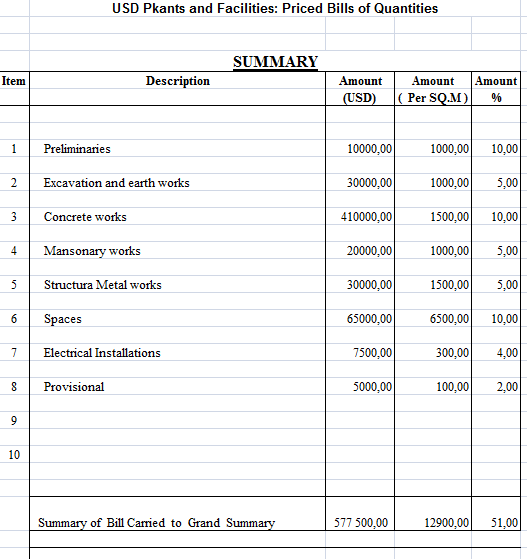A Procurement System and a Contract Strategy
Determining the stages needed to be completed in order to retrieve the necessary resources is a crucial step in improving the chances for the project to succeed. In the cases under analysis, the resources required to conduct the necessary construction works can be purchased with the help of the standard approach, i.e., either by using a credit card, or with cash.
It could be argued, however, that the process could be improved significantly by incorporating digital tools, such as smart cards. Nevertheless, the credit card can be used to buy the required products online and have them delivered to the designated venue. Therefore, it can be assumed that both projects imply similar challenges in the case in point,
The contractual agreements should also be viewed as an essential deciding point when it comes to choosing between the projects. According to the Chinese legal standards, there is a standard for the local projects that is known as the Model Construction Project Contract (Construction and projects in China: Overview, 2016). Approved by the Chinese legal authorities in 1999 and updated in 2013, the regulation implies that an agreement must be made on either a municipal or a statewide level so that the project could be completed.
It is important that the signing of the identified contract implies that the project should be supervised at the state level. In other words, the parties making an agreement will be legally obliged to meet the requirements set in the contract (Zou, Fang, Wang, & Loosemore, 2007).
Since both projects are supposed to be signed with the leaders of the institutions that are under the state regulation, it can be assumed that the provisions of the Model Construction Project Contract are applicable to both of them. Therefore, in terms of possible legal issues, both offers seem quite legitimate and, therefore, worth pursuing.
As far as the choice of the contract form is concerned, one should consider using the framework suggested for local projects. The identified framework will help attain the essential project objectives since it will provide the foil for a careful and consistent supervision of the progress. Thus, a significant improvement in the quality of the outcomes can be expected (Ofori, n.d.).
Tendering Methods, Estimating Methods, Methods of Dispute Resolution
According to the Tendering Law and Construction regulations adopted in 1999 (Zou, 2007), the options for tendering in the construction industry in China are comparatively few. When choosing the defining characteristic of the construction environment in China, in general, and the tendering processes in the identified area, in particular, one must bring up the fact that it is supervised extensively by the government and the local authorities. Therefore, the candidates are expected to follow a set of rigid requirements when submitting the bids. As a result, it is expected that the procedure is going to be comparatively tedious and bureaucratic.
Furthermore, the number of tendering methods in the Chinese construction industry is rather small. Seeing that the governmental control over the processes is rather tight, one must admit that the bidding options are not very numerous. Nevertheless, one may increase the number of opportunities for tendering by considering the provisions of the Fight Bid-rigging Cartels (OECD, 2016).
Bills of Quantities Based on the Standard Method of Measurement and Specification
The process of determining the price of the bid, in China in the realm of the construction industry, one must focus on the process of cost assessment specifically. According to the state regulations, there are five essential stages of the process, each requiring a careful assessment of the financial resources that are available to the bidder. The feasibility stage implies that the expenses and the value of the project should be estimated carefully. Despite the fact that it is rather complicated to determine precisely whether a project is going to be successful or not at the inception stage, it can be assumed that the expansion of the car parking facilities seems to require a fewer number of resources and a significantly smaller amount of time than the one implying the redesign of the sewer system.
The preliminary design stage implies that the essential steps needed to complete the project should be outlined. For the cases under analysis, there are going to be significant differences at the stages involving the use of the infrastructure. While the first project leaves it barely touched, the second one demands that drastic changes should be made to it. The detailed design stage, in its turn, incorporates the elements that may have been overlooked or omitted during the previous phase of the measurement and specification process.
In the course of the identified phase, the bids submitted for the tender are sent to the Tender Bureau so that they could be recorded properly. The identified stage is crucial since it allows for a careful supervision of the essential aspects of the bidding processes by an independent party. As a result, the threat of fraud or any other factor that may cause harm to any of the participants involved can be driven to zero.
In the suggested scenarios, it is desirable that the supervision process should be consistent and unceasing. Therefore, the first project as the one that implies a tighter security and, thus, a more careful and accurate compliance with the existing contractual standards and the current obligations, should be viewed as a more beneficial one (The construction sector in China, 2013).
Indeed, as the bill of quantities for the first project shows (Figure 1), the number of expenses to be taken in order to manage the tasks and create a sustainable economic environment for the project are considerably less numerous than the ones for the second one (Figure 2).


As stressed above, the identified difference can be explained by the need to alter the existing infrastructure. Seeing that the latter is fraught with numerous risks, including the failure to design a new and improved infrastructure and, therefore, failing to meet the project requirements, it can be viewed as an undesirable route to take.
References
Construction and projects in China: Overview. (2016). Web.
The construction sector in China. (2013). Web.
OECD. (2016). Guidelines for fighting bid rigging in public procurement. Web.
Ofori, G. (n.d.). Challenges of construction industries in developing countries: Lessons from various countries. Web.
Zou, P. X. W. (2007). An overview of China’s construction project tendering. The International Journal of Construction Management, 1(1), 23- 39.
Zou, P. X. W., Fang, D., Wang, S. Q, & Loosemore, M. (2007). An overview of the Chinese construction market and construction management practice. Journal of Technology Management, 2(2), 163-176.